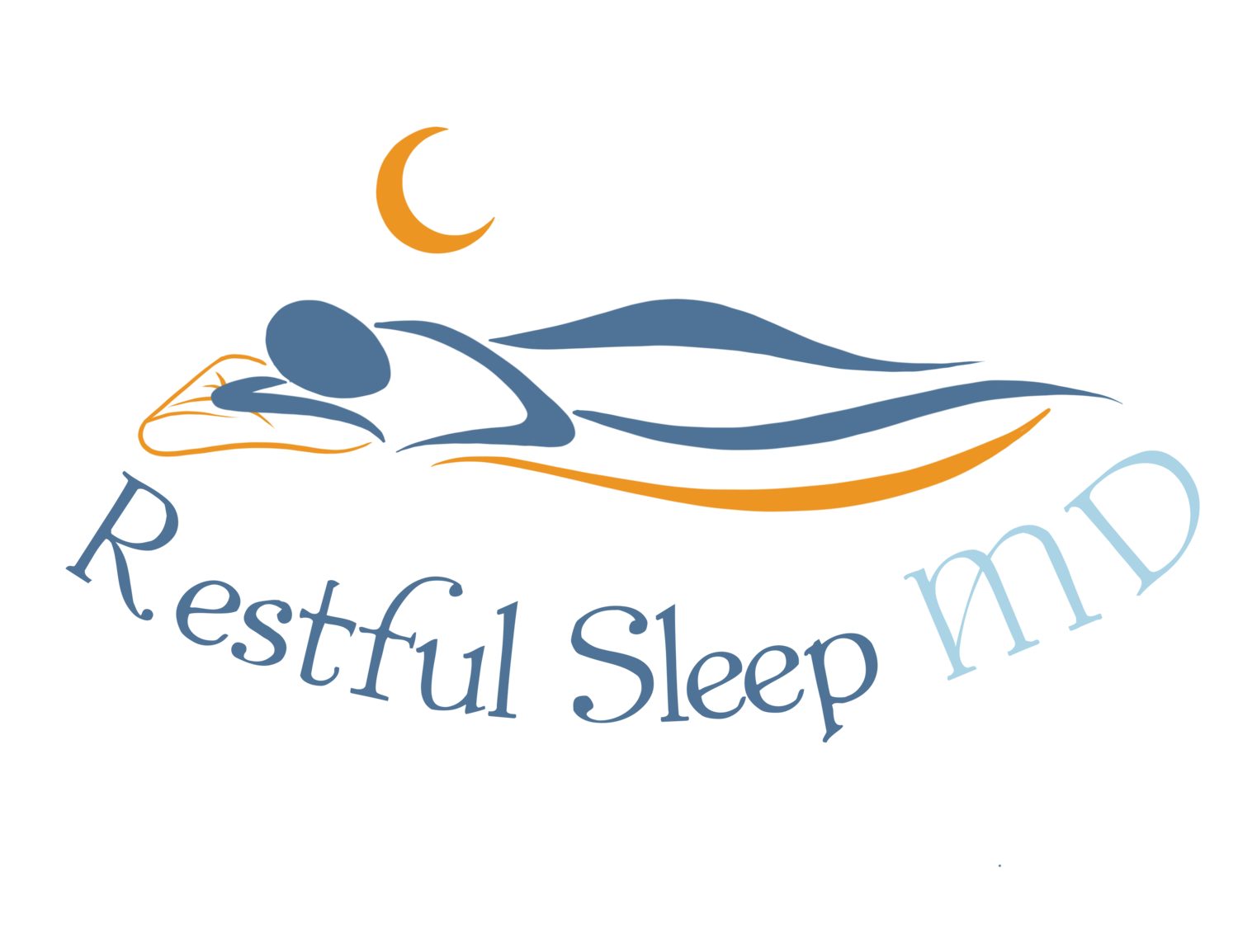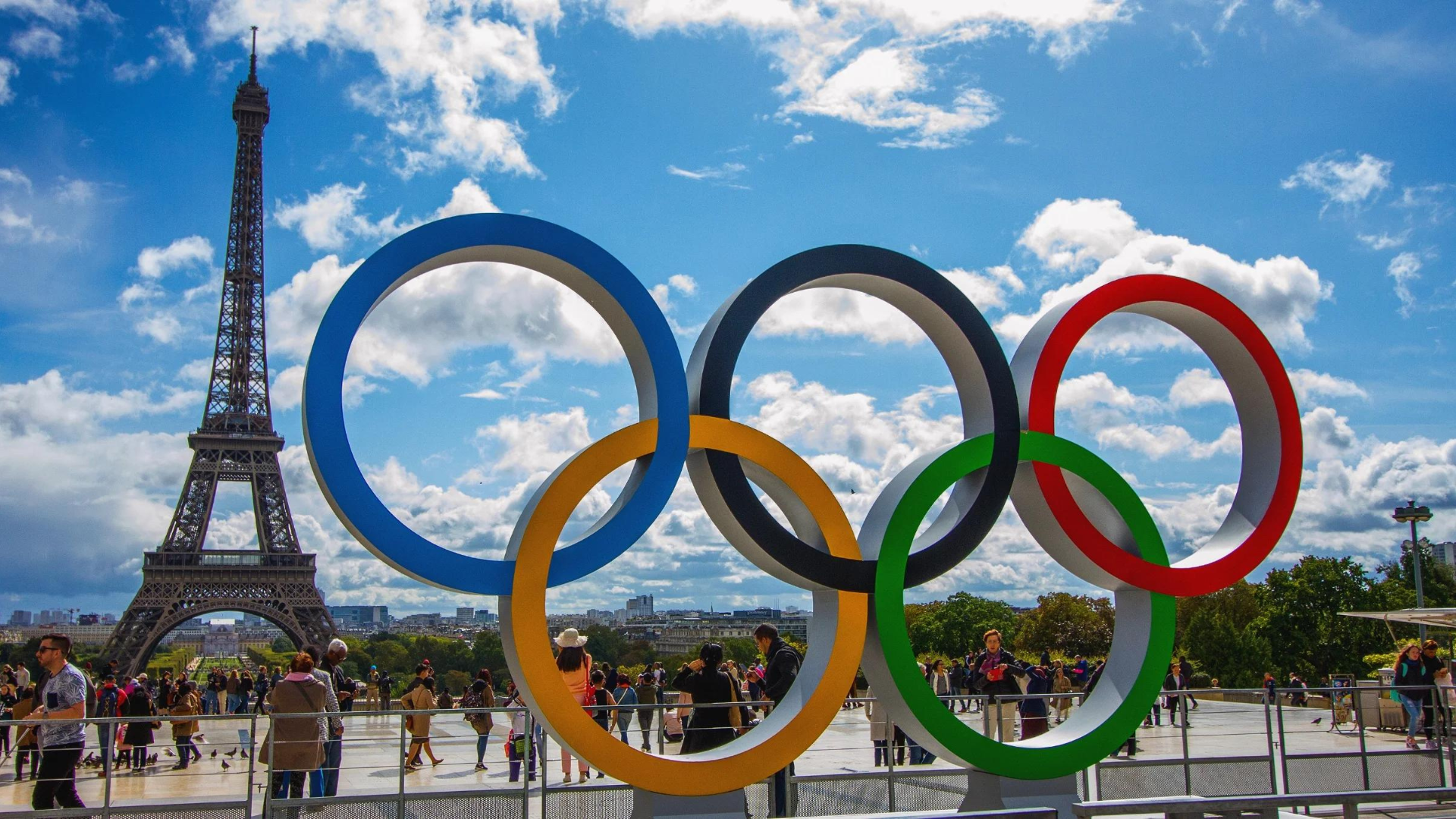Great Night for Gold – Olympic Dreams! Achieving Restful Sleep: Essential Tips for Athlete
By Brendan Duffy RPSGT CCSH – Team Sleep Consulting and Funke Afolabi-Brown, MD, FAASM- Founder, Restful Sleep MD
The iconic Olympic rings displayed prominently in front of the Eiffel Tower in Paris.
The Olympics in Paris are just a few weeks away, and the athletes are gearing up to see if their dreams come true! –Winning Gold!
In many cases, realizing this extraordinary lifelong dream may be determined by how they manage their time in bed, resting, dreaming, and recovering from their daily high-intensity workouts.
So when does training begin each day? Trick question! It starts the night before the early morning running, skating, rowing, and swimming.
Several notable Olympic champions have mentioned how important their “sleep game” was in helping them to the podium as world champions. Usain Bolt considers sleep the most significant component of his daily training. He stated he needs to rest to incorporate the training his body has absorbed that day.
Olympic champion Michael Phelps has often talked about how important sleep was for him during his career.
As Phelps stated in a GQ article (1)
"I know how important sleep is," he said. "I wanna be the best every day, and my best is getting 7 to 9 hours."
But what about the Olympic Village? What challenges will the athletes have to overcome before competing in their events?
Travel adjustments and jetlag – getting to the Olympics requires some calculations on how athletes will adjust to the flight and how to avoid or embrace light during the transition. Long flights can also affect circulation, so athletes must stretch and walk around to prevent serious complications. Changes in cabin pressure can be disruptive and may take time to recover from once landed. Many of these decisions must be monitored and worked through with the team’s medical staff, a sleep coach, or a sleep consultant.
Sleeping in an unfamiliar environment – while many athletes can adapt quickly to new environments, others struggle to shut down and sleep in unfamiliar spaces once they are out of their routine. Some are away from family and bed partners. They may be in an environment in Paris where the sleep temperature may not be sufficiently cool enough for their personal core body preference or needs.
Sleep-related anxiety and insomnia - many factors contribute to sleep-related anxiety and insomnia among athletes. Some of these include the high stakes of playing at this level of athleticism, the pressure to perform well, and public and media expectations. This leads to amplified stress and anxiety, making it hard to obtain sufficient shut-eye.
Sleep Timing: athletes may have different chronotypes and want to stay up later or go to sleep earlier. A chronotype is an individual's natural inclination regarding the times of day they prefer to sleep or when they are most alert and energetic. It describes a person's biological clock, dictating their sleep-wake patterns and daily rhythms. One solution to minimize disruption is to house athletes based on their chronotype- a concept I coined “Chrono-dorming.” This means having two athletes of the same chronotype to allow them to room together to maximize their rest and recovery, as they will both be morning larks or evening owls and are likely to sleep on similar schedules.
Timing of Competition – routines can be critical to athletic performance. Still, often during the Olympic events, athletes who are used to competing in the morning or evening now must compete on different schedules. This change can impact their performance based on their chronotype, and preparation is needed for this shift in their regular practice times.
Sleep Quantity – Training schedules and games can all negatively impact the amount of sleep an athlete can get before competition. After the events, celebrations and overall excitement become more distracting, limiting sleep. While time for networking and celebrations is essential, sleep should not be placed on the back burner. Physical, emotional, and mental recovery is needed, and sleep plays a key role.
A group of four happy athletes celebrating on a track field, each wearing a medal around their neck.
How to Sleep Well for the Gold at the Olympics
Restful Sleep is a non-negotiable foundation. They are critical building blocks for healthy sleep habits. Seeing how sleep impacts every domain in our athletes' lives while juggling practice and other items on their plates, healthy sleep habits come at a low cost and effectively get athletes the sleep they need for the gold at the Olympics.
Optimize Sleep Schedules: Maintaining a consistent sleep schedule while traveling for the Olympics can be challenging due to time zone differences. However, athletes can use several strategies to minimize the impact of jet lag and adjust their sleep patterns effectively. They can gradually shift sleep and wake times about a week before departure to align more closely with the destination time zone. Morning light exposure for eastward travel will help reset their internal clock.
Have a calming bedtime routine: Bedtime routines help reinforce the mind and body that it’s time for bed. Routines create a sense of predictability and calm, which can be especially beneficial for athletes who may experience high stress and anxiety levels before competitions. These should be short, sweet, and should move in the direction of the bedroom.
Sleep-friendly environment: Their sleep environment should be pleasantly relaxed, dark, and noise-free. One of the most significant signals to our circadian rhythm is light exposure. Athletes can bring familiar bedside pictures or pillows and pillowcases. Aromatherapy, such as lavender sprays, sleep masks, and earplugs, can also be helpful. Another option is a white noise machine to dampen unfamiliar noises. Anything they can do to make the sleep environment more ‘homey” and familiar will help ease the strangeness and foreign feel of the bed area.
Assign the bed for sleep: Spending prolonged time doing nonsleep activities like scrolling on social media is so easy. This leads to the brain forming the wrong associations. The time spent in bed should be spent sleeping. Other activities should be performed outside of the bed.
Tackle technology: Keeping up with family and friends while away from home is an excellent use of technology. However, spending excessive time on the news or social media can be a significant sleep disrupter, wrecking more havoc on sleep and suppressing the brain’s melatonin production. Exposure to blue light from electronic devices tricks our brains into thinking it is still daytime and melatonin levels may not rise appropriately. Night shift mode on the phones or blue light-blocking glasses can help address this. An athlete’s brain needs downtime, and these interruptions lead to increased arousal that can prevent you from falling asleep. Notifications should be silenced.
Eliminate caffeine, alcohol, and heavy meals: Most energy drinks are caffeinated and can be a common culprit for sleep disruption in athletes. The effects of caffeine can last as long as 8 hours to wear off fully. Drinking coffee or an energy drink late in the day can cause difficulty falling asleep. Limit caffeine intake after lunchtime to ensure it is out of the system by bedtime. Large meals can cause stomach discomfort from indigestion and sleeping difficulties. Alcohol has a sedating effect, and while it may help with relaxation and falling asleep, it can rob athletes of deep sleep, a critical stage of sleep that enables them to feel rejuvenated.
Addressing Sleep-Related Anxiety and Insomnia: relaxation techniques such as deep breathing, progressive muscle relaxation, meditation, and other mindfulness strategies, as well as limiting stimulating activities, can help reduce anxiety and should be incorporated into the nightly routine. Ensure athletes can access sleep experts, including sleep coaches and consultants, to provide personalized strategies such as cognitive behavioral therapy for insomnia. Pharmacological interventions such as melatonin and short-term sleep aids may be required, but they should be done in consultation with a sleep expert.
In Olympic events, where world champions are often decided in milliseconds, reviewing every aspect of an athlete's training and preparation for the events is crucial. The evidence for sound sleep for optimized performance, response time, and recovery is vital. Sleep is the ultimate performance enhancer with no side effects. Our athletes’ dreams of winning the gold will require bringing their all, including their best-slept selves.
These world-class athletes must treat the sleep portion of their time in Paris as one of the most essential parts of their Olympic journey! To shine in the lights of Paris, they must first win in the dark! – that means training with a championship sleep game plan before and during the Paris Olympics. Recovery, performance, injury prevention, and champion mindset are all built, locked, and loaded in their Olympic dream sleep – They must first win in the dark!
Michael Phelps said, "u dream, the more you achieve.”
Quite literally - he may be on to something!
Golden Slumbers and best wishes to all the world Olympic competitors!
References-1- https://www.gq.com/story/real-life-diet-michael-phelps
About the Authors:
Dr. Funke Afolabi-Brown is a triple board-certified Sleep Medicine Physician and founder of RestfulSleepMD, where she helps individuals optimize their performance through better sleep. She is a speaker and consultant for various organizations and has been featured on numerous media outlets like Forbes, ABC News, Washington Post, New York Times, and Fox News.
Brendan Duffy is a Certified Clinical Sleep Educator and Registered Sleep Technologist. He has worked with several NCAA teams and elite athletes on sleep matters related to recovery, performance, injury prevention, and travel planning.
He recently partnered with the Sunbelt Conference on their “Sleep to Rise” campaign, which focused on how sleep impacts elite athletes and their mental and physical wellness.
Email is Sleepcoachz@gmail.com.



